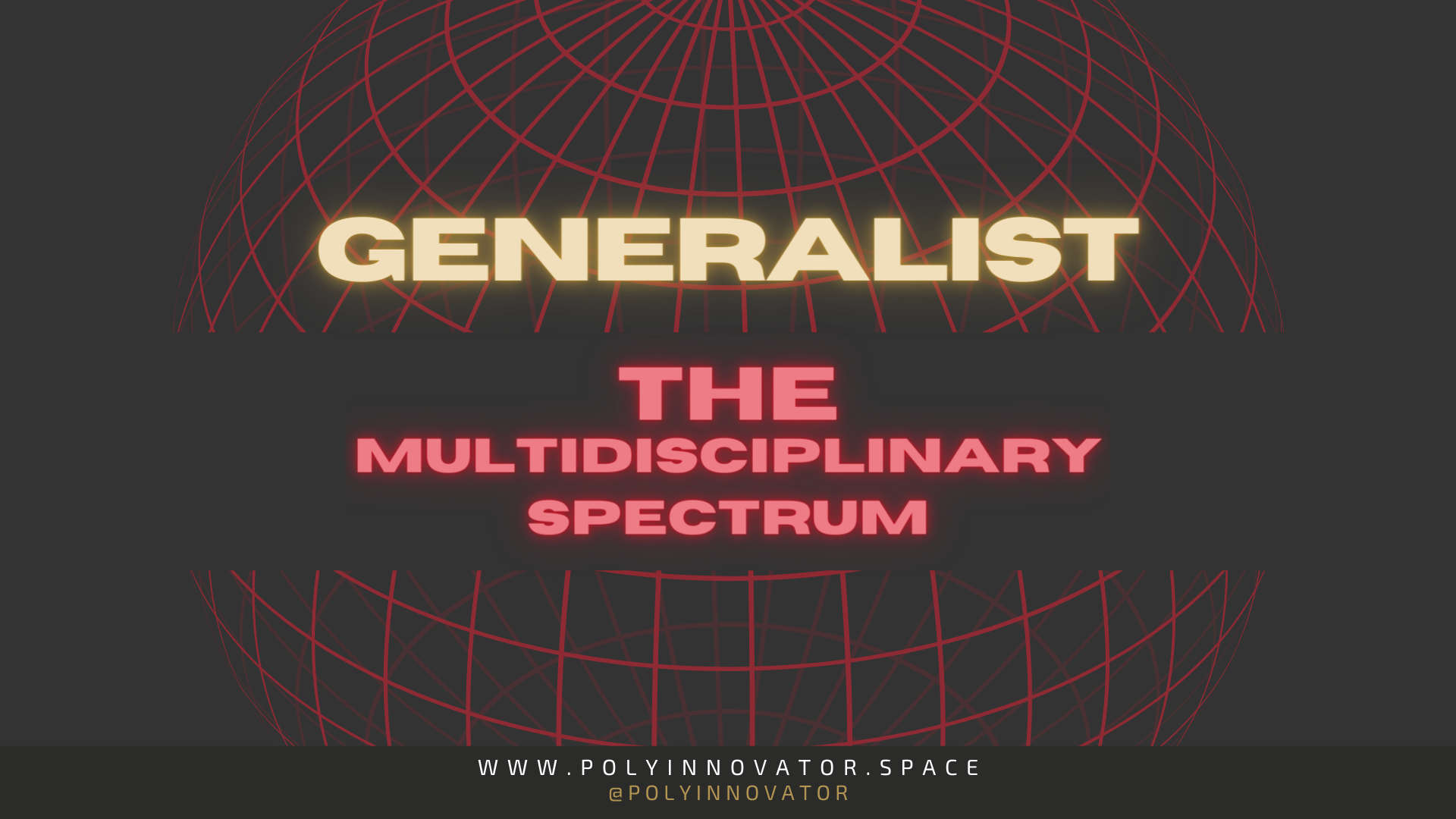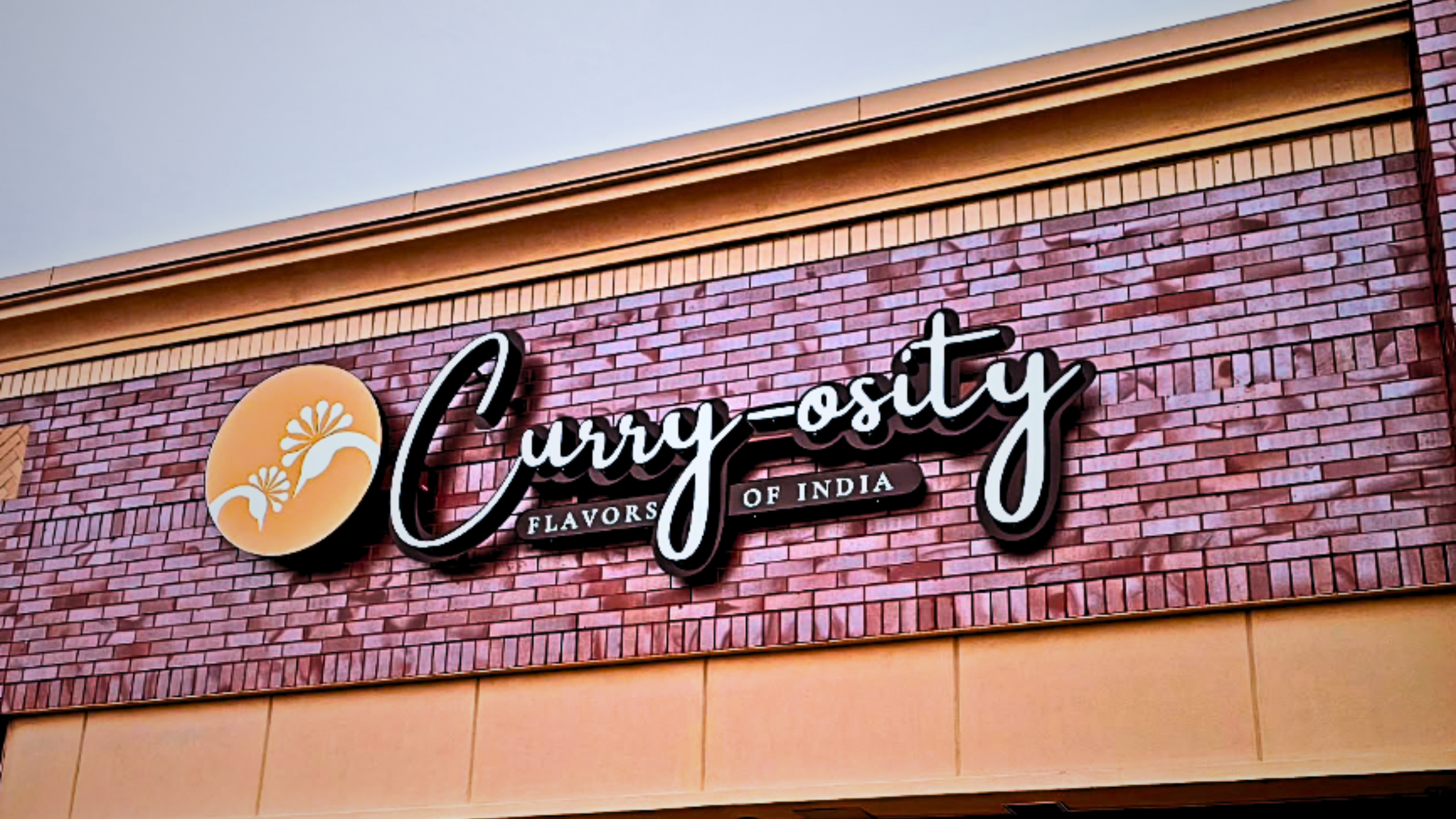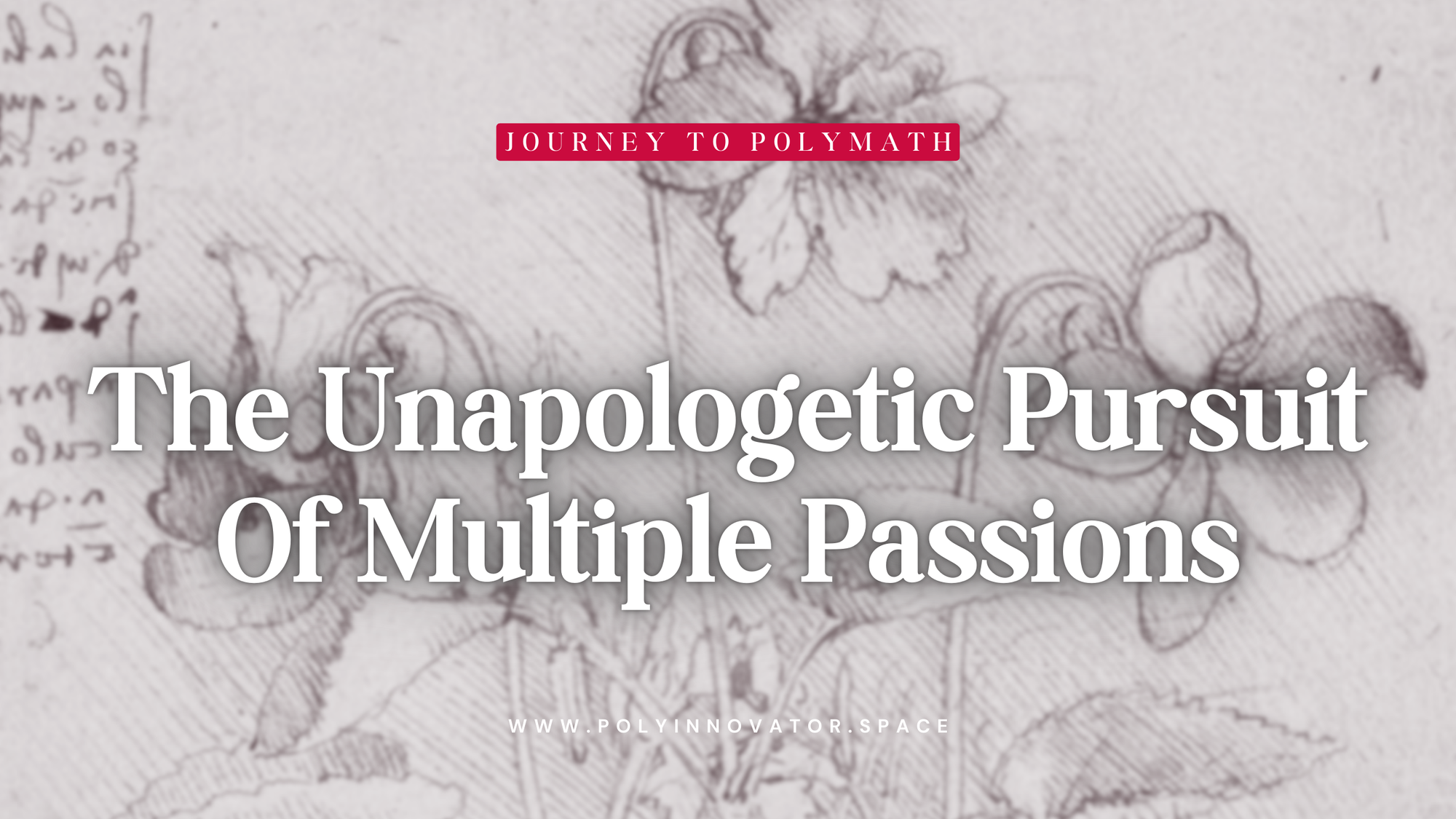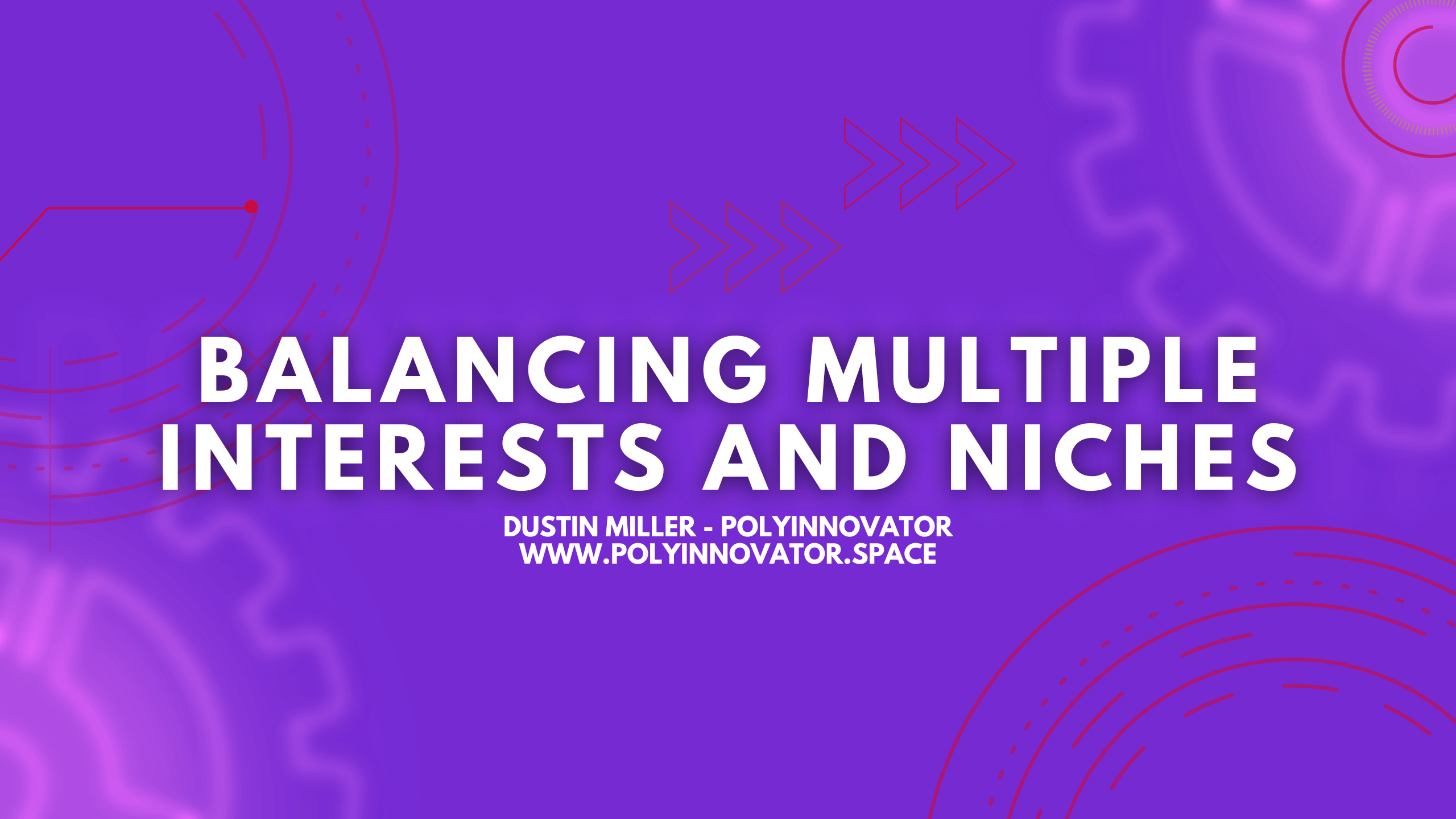Here is a video relation to this post, as well as the PolyCast!
The Balance of WIDTH vs DEPTH!
From the diverse jack of all trades, to the inventively deep Polymath. The range of the Generalist nature is not left unnoticed.
Generalists make up the Population
We are naturally generalists, as it is in our nature to be curious and learn; Through our lives, with all of the experiences and jobs we've had. The byproduct of living an average lifespan is that we are generalists. Even if at the end we may of had one or two specialties, there are a lot more skills that we know.
One might find that going to school, or aiming for an education, without a clear goal in mind would be a waste of time. Alternatively, you can see it as an ever growing insatiable curiosity. However you look at it, there is one point that remains: That success comes from the educated mind.
This is the third episode in the #OmniContent Mini Series called "The Multidisciplinary Spectrum", a group of terms similar to the idea of becoming a polymath or renaissance person. With a Generalist there is a lot more simplicity to the idea. As we will get into later, but the multi-disciplinary lifestyle I think really starts to shine at this point.
The Generalist whether expert or not, is the idea that you can do many things. Not only do you do many things, but you do them well too. - PolyInnovator
Why are we lead to believe in Specialists?
It is our innate human desire to survive, or better yet thrive, and in the modern sense that means financial stability.
It is why society incentivizes specialists over generalists. Particularly ever since the industrial revolution, with it only being rare prior, as most people needed multiple skills.
Prior to the I.R. we had blacksmiths, farmers, seamstresses, maybe scientists, doctors, and kings/queens. There wasn't very many trades one could have, and so people dabbled. It was possible to be a "master of everything", as it would only take so much learning (with a decade or so of experience). It is theoretically possible, although most people just "stayed in their lane".
Think of yourself as a person in the early 1900's, either striving to work in a factory so that you could get enough income. Perhaps during the depression, where you legitimately couldn't even get a job.
If you are that person striving to get money, so that you may provide for your family. Wouldn't you get the best job you could? That would be getting yourself a position in a factory, work yourself to the bone, but in order to make everything the most efficient; The companies started organizing you into certain micro-trades, and you do just that one job really well to get those cars or whatever through the line.
Being a specialist is just being a singular stop in the production line of a factory.
Remember you are the provider, and you need a job. So you'll do that one thing over and over again, so that you make ends meat.
Here is a post as to what being a generalist without action is:

From there we learned How to formulate companies
It was then that started the "9-5" and the specialist mindset when it comes to what employees to hire.
We saw a rise in various companies over the coming decades, and when the space race hit it skyrocketed. Literally.
We needed people who knew physics, welding, mathematics, astronomy, and more. However we didn't need just one person to know them all, but rather a team that could work together.
That same mentality carried over into what is the push right now: STEM.
Science. Technology. Engineering. Mathematics.
Once again we found ourselves in the position of needing specialists. From computer programming, to the financials of the business world.
In the ecological standpoint:
"Specialists do not cope well when the environment changes. Generalist fair better because they can adapt when the environment changes."
-FuseSchool - Global Education
However when you look at how our species has evovled, it is the fact that we were generalists that has allowed us to survive. When you look closely at what the employment and societal norms dictate in the past twenty years... it actually shows that we favor generalists believe it or not!
Here is the previous post in this series!
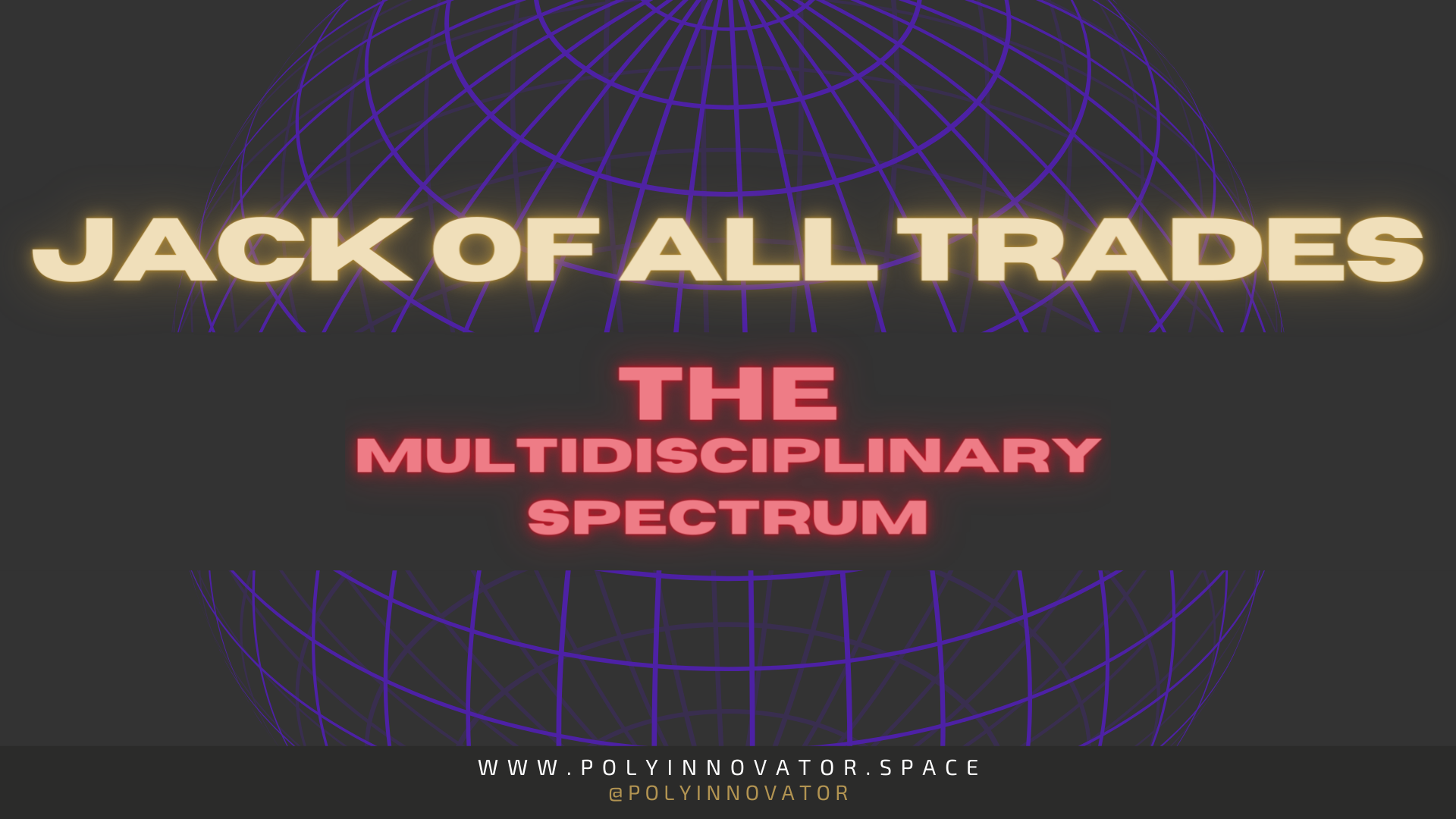
David Epstein's Book: RANGE
I thought it would be wise to make a quick section purely about this book, and maybe I'll even do a book review down the line.
Late specializers felt that they were the odd one out, but in reality many of them did the same thing. Dabbled in many areas, then finding the one they wanted to stick to more. "They didn't have career goals, but rather 90 day goals at best!" -
What does this mean for the Modern Generalists?
We need to approach our actions in a modern way, and show the world that we are here. Let alone needed!
The corporate world is DESPERATE for generalists, and most of the time they don't even realize it. Always searching for the "unicorn" employee, or T-Shaped marketers, or the "glue" between departments. Guess what? Those are generalists, and it is that simple.
SO WHAT?:
How can we even get into those roles? How can we as generalists get ourselves even seen, especially since a lot of our knowledge may not be formal education.
Well you need grit for one, and being able to tough it out. It is going to be difficult for the next decade or so. There is a massive shift right now, and with web3 I think it is only going to get better for us. Until then here is what you need to do.
Learn to market yourself, and be able to handle the rejection you may face.
Given the understanding of how the market currently is, it may be a lot! 😂
Just stay strong, have grit, and keep pushing through. Learn to market yourself and your personal brand well!
Here is a useful tool to Pitch yourself to a company instead of purely applying:

Specialists are what society thinks we need, and Generalists are actually what we need.
The generalist people are the connective tissue in companies, they are the dual specialties, the bread and butter to entrepreneurs.
Ironically our economy is ran by generalists. Did you know that? Every entrepreneur and business owner could tell you, as they have to wear multiple hats. Juggling every role, and putting out all the fires. All those entrepreneurs out there are often generalists not fitting into the path of society.
All those tech companies from Microsoft to Meta, and even Amazon and SpaceX; They are all ran by polymathic generalists, who have managed their time well, and pursued their entrepreneurial vision. Even when society said they would fail, they would fail because they dropped out, they would fail because they dreamed too big, etc etc.
Yet here we are a decade or two later, and they are still being generalists running multiple companies.
YOU MIGHT LIKE THESE (Backlinks, and Related Posts) + Additional Research and Recommended Readings:
Articles:





/https%3A%2F%2Fblogs-images.forbes.com%2Fthumbnails%2Fblog_898%2Fpt_898_7089_o.jpg%3Ft%3D1342036170)
/https%3A%2F%2Fspecials-images.forbesimg.com%2Fimageserve%2F5f4989f3fc662ac239628b58%2F0x0.jpg)

![Official Website for Dustin Miller PolyInnovator [LLC]](https://polyinnovator.space/content/images/2025/03/polyinnovator-logo-2024.png)

